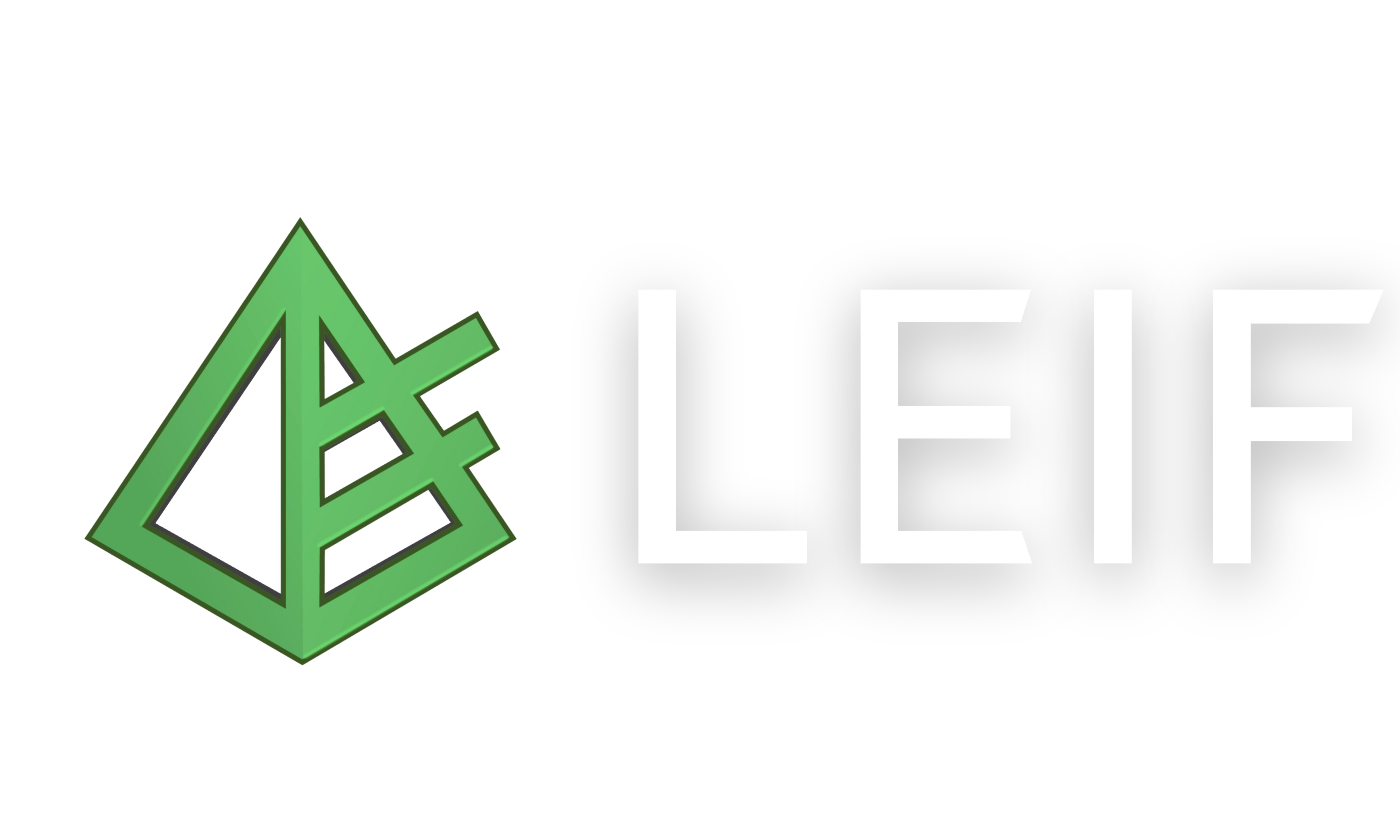About Us
Taking Sustainability From Concept to Action.
Step toward a sustainable future with LEIF using science-based and data-driven methodologies.
LEIF's Vision.
Accelerate the sustainable transformation of the global economy.
To that end, we will
Deliver credible intelligence to help companies invest confidently in sustainability growth initiatives.
Increase accessibility of best-practice LCA & climate action planning using AI & automation.
Push the frontier of sustainability sciences by pioneering & applying emerging best practices.
Identify & prioritize climate action opportunities for companies & industries across the globe.
Why LEIF?
“We created LEIF in response to industry leaders asking for help to create methods and tools that would provide detailed, repeatable, scalable assessments of product impacts, alongside actionable insights into what can realistically be done to address hotspots and achieve impact targets.
Our mission is to help our clients understand and successfully reduce their impact, which is why we bring together the best minds, methods, and technology to inform their climate action plans and sustainability investments with highly credible, science-based, data-driven information.”
What Makes LEIF Unique
University Partnership
LEIF originated as a University of Minnesota (UMN) start-up, and our partnership with UMN remains a cornerstone of our constant drive to pioneer new innovations that propel sustainability around the world.
This collaboration brings unparalleled access to world-class research, cutting-edge technology, and expert faculty. Through our partnership, we transform groundbreaking academic research into actionable strategies for our clients, ensuring our solutions are not only innovative, but grounded in the latest science, giving our clients a distinct competitive edge by staying ahead of industry standards.
Research Excellence
LEIF’s commitment to innovation is exemplified by our commitment to peer-reviewed research, led by Dr. Rylie Pelton. We consistently push the boundaries of sustainability science, rigorously developing new methodologies that are both cutting- edge and practical for real-world application.
Our research focuses on transforming tools like LCA from a mere means of reporting impacts, into powerful instruments for targeted, credible, effective action to improve sustainability.
A prime example is our recent beef LCA paper, which is already influencing practices in sustainable agriculture. This research equips our clients with the most advanced, scientifically validated strategies, allowing them to lead in sustainability with confidence.
Next-Level Modeling
LEIF’s modeling is state-of-the-art, integrating advanced energy, land use, and commodity data with unmatched precision. We offer the only electricity models providing annual subregional lifecycle emission factors from 2007 to 2050, including marginal emissions for accurate decarbonization strategies.
Our commodity models surpass national and state averages, offering county-level insights that consider specific supply chain regions, production methods, and local environmental conditions.
Our land use change models further enhance accuracy by integrating county-level satellite data for the world’s most precise LUC emissions estimates. These tools empower clients to achieve sustainability targets with the most actionable data available.
Influential Leadership
At LEIF, leadership means driving the evolution of sustainability practices by consistently pushing the boundaries of what’s possible. We do this by publishing research that not only stands up to rigorous peer review but also sets new benchmarks for the industry.
Our expertise is well known and trusted by prominent leaders across industries, who regularly invite us to roundtable discussions, seeking our guidance on their most pressing sustainability challenges.
Whether through these high-level collaborations or our active participation in global conferences like ISIE, we lead by example—shaping the future of sustainability with innovative, science-based solutions that others follow.
Why LEIF is a Step Ahead
US Dairy Industry
LEIF conducted a pioneering LCA for Dairy Management Inc. (DMI) and the U.S. dairy industry, evaluating nearly all dairy products produced in the country. The study incorporated the latest science to estimate regional emissions in key hotspot areas, establish a baseline for GHG neutrality targets, and project emissions out to 2050.
A dynamic LCA calculator tool was developed to simulate thousands of scenario permutations, considering hundreds of variables such as supply chain logistics, production processes, fuel sources, electricity grids, and management methods.
This tool offered the most comprehensive and realistic emissions profile calculations to date, highlighting the interplay and trade-offs between mitigation strategies. The project is foundational for the U.S. dairy industry’s journey toward achieving its long-term sustainability goals.
Technology Manufacturing
LEIF conducted an LCA focusing on global integrated circuit manufacturing to identify greenhouse gas (GHG) emission hotspots and assess opportunities for mitigation. Partnering with a top-ranked Fortune 100 company, the study employed a parameterized approach, analyzing diverse data sources and simulating various production scenarios.
The analysis was aimed at assessing emissions intensity trends and identifying critical leverage points for GHG reduction, particularly in Scope 2 and Scope 3 emissions—areas known for being challenging in previous accounting efforts. This approach enhanced comparability, reduced analysis costs, and provided timely insights for supply chain management and climate action planning.
LCA and climate action strategy are rapidly evolving frontiers of science. New best practices continuously emerge and it’s important that impact assessments and mitigation strategies are updated & maintained in real-time to ensure your sustainability goals, guidance, and investments are always informed by the most accurate, relevant, and compliant information possible.
LEIF’s mission is to deliver the best possible science-based, data-driven decision support to businesses around the globe who want to understand and improve their sustainability. By combining cutting-edge LCA with innovations in data science and engineering, our repeatable, scalable tools provide unparalleled insights into your climate impacts and climate action opportunities.
Carbon Capture and Removal
LEIF conducted a Life Cycle Assessment (LCA) to evaluate the environmental impact of enhanced mineral weathering in wastewater treatment and cement production. The study focused on optimizing carbon sequestration benefits by examining different production and management decisions, processes, and locations.
A parameterized LCA tool was developed to explore a wide range of production scenarios and assess uncertainty. The findings highlight significant benefits for mineral weathering in these applications, paving the way for future industrial applications of carbon capture and durable removal (CCDR).
Achieving your sustainability goals and maintaining compliance with emerging regulations is all about identifying and effectively addressing critical impact hotspots. This often presents a challenge when the majority of impact sits in upstream supply chains, where data availability, accuracy, and transparency can be limited.
For complex supply chain scenarios, where highly detailed parameterized process LCA is not possible due to data limitations, LEIF employs a specialized hybrid LCA approach, giving you the best possible quality and granularity of data and insights across a dynamic range of supply chain tiers, subregions, industries, and scenarios.
Meat Processing
LEIF conducted an LCA for a leading meat processing company, focusing on estimating greenhouse gas (GHG) emissions from ‘cradle-to-processing gate.’ The study covered upstream processing, transportation, and facility energy use, with a goal to develop spatially explicit GHG emissions estimates across the supply chain.
The analysis examined strategic opportunities in crop production, livestock production, and both primary and secondary processing. This LCA provided the company with actionable insights to enhance sustainability, enable accurate GHG reporting aligned with GHG protocol Scope 1, 2, and 3, and support their long-term sustainability goals.
The data used to assemble life cycle inventories and impact assessments are often aggregated and lack the granularity and specificity necessary to yield accurate, actionable insights into impact hotspots and realistic impact mitigation opportunities.
At LEIF, we use parameterized LCA approaches that capture detailed nuances unique to your operations and supply chain, including differences across subregional sourcing regions, processing methods and technologies, material and energy types, and more. Our innovative data engineering and automation techniques allow us to simulate discrete permutations of production and sourcing scenarios, helping identify and prioritize hotspot mitigation strategies that can realistically be co-mingled to reach sustainability goals.
People Who Love Our Place
A descriptive paragraph that tells clients how good you are and proves that you are the best choice that they’ve made.


